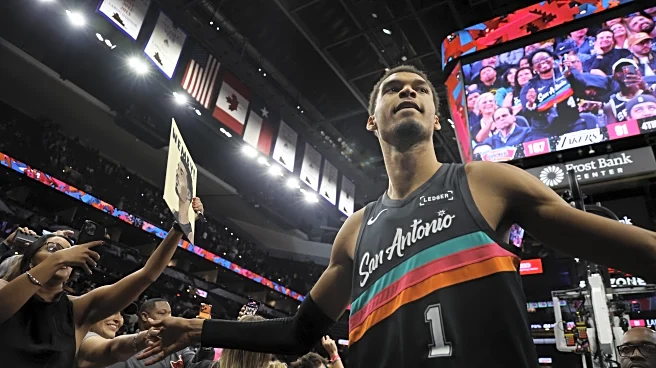What's Happening?
The Texas Rangers and manager Bruce Bochy have mutually agreed to part ways after a three-year tenure. Bochy, who led the Rangers to their first-ever World Series title in 2023, will not return as manager for the 2026 season. The decision comes after the team finished the 2025 season with an 81-81 record, missing the playoffs for the second consecutive year. The Rangers are facing financial constraints, with around $150 million in guaranteed contracts for the next season, prompting a potential shift towards younger players and a reduced payroll. Bochy has been offered a front office advisory role, though it remains unclear if he will accept it.
Why It's Important?
This development marks a significant shift for the Texas Rangers as they navigate financial challenges and aim to rebuild their team strategy. The decision to part ways with Bochy, a respected figure in baseball with a history of success, underscores the team's need to adapt to budgetary constraints while fostering young talent. The Rangers' financial situation, with substantial contracts tied to key players, limits their flexibility in the market. This move could impact the team's performance and strategy in the coming seasons, as they balance financial prudence with competitive aspirations.
What's Next?
The Rangers are expected to focus on developing young talent and managing their payroll effectively. The search for a new manager will likely prioritize candidates with a strong background in player development. The team's financial strategy will be closely watched, as they aim to remain competitive while adhering to budgetary limits. The potential acceptance of the advisory role by Bochy could influence the team's strategic direction, depending on his involvement in the front office.
Beyond the Headlines
The decision to part ways with Bochy highlights broader issues in Major League Baseball regarding financial management and team building. The Rangers' situation reflects the challenges teams face in balancing high-profile contracts with the need for sustainable success. This move could signal a trend towards more fiscally conservative strategies in the league, as teams navigate the complexities of maintaining competitiveness while managing financial constraints.











